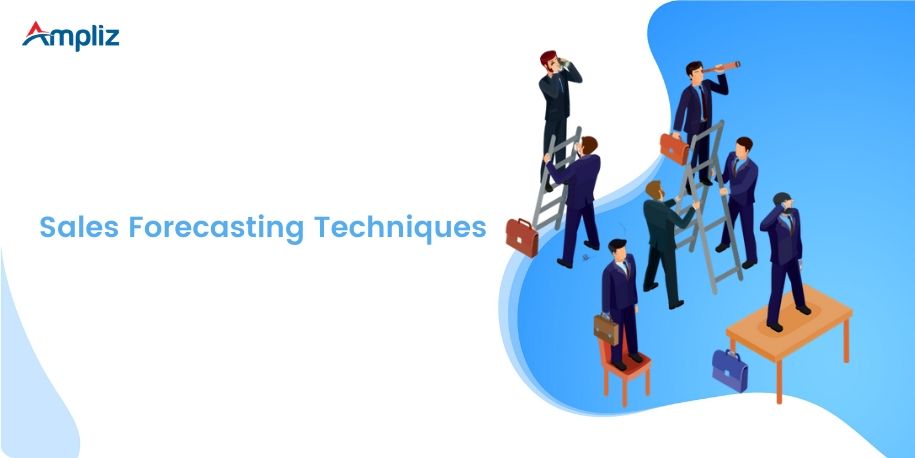What is sales forecasting methods? Closing deals and increasing revenue are two of the primary tasks & goals of any business. It is also something that you invest a lot of time in, thinking and devising strategies around.
In spite of putting all the efforts and investing in a large team, many organizations are not able to make significant sales.
They are, at many times, not prepared for what may happen in the market and the way their sales strategy should be shaped.
This factor of unpredictability in your sales funnel can directly mean wasting your time, money, energy and other resources.
After all, if you have to sustain a business in today’s world, it must not be guided by an underlying intuition but hardcore data. That’s when the concept of forecasting comes into the picture. No matter which successful business you look at in today’s world, all of them are forecasting sales for their business, because of its obvious benefits.
If you haven’t been best forecasting method for sales for your business until now, it’s something you must start doing right away.
Let’s take a look at what precisely is method of sales forecasting and how your business can capitalize on the popular sales forecasting methods.
What is a Sales Forecasting?
While a lot of companies do it and you might have a fair idea of what it means, sales forecasting is often a technique that helps you take a peek into the future.
In other words, it predicts your sales pipeline and helps you see what it might look like in the future.
Having a sales forecast is fundamental to any business strategy and helps them stay prepared and understand the insufficiencies of their business.
But, it isn’t certainly a magic bag that you can dive into and pull out the first number that appears there. Similarly, it’s also not about inflating your sales number such that it is unrealistic and impractical.
The trick to a successful forecast is to understand the direction in which there are wrong and then get a clear picture of how the business id doing. While the forecasting might give you a number, it is up to the business to break it into small and meaningful assumptions, that can be looked upon later and improved.
Most businesses often think that the number they observe from sales forecasting is everything they need. However, in reality, leaders must also look at economic trends, as well as the trends in their industry.
So that the sales prediction is accurately shaped in the light of the existing business data.
The point is that when sales forecast is combined with market research and competitive intelligence, it helps in improving the accuracy of the overall prediction, thus enabling a better understanding and decision making at the business level.

Best Sales Forecasting Methods
Sales forecasting methods can help an organization plan the growth of their sales team. Not only does it help in staying more prepared, but it also aids businesses to answer some of the most important questions.
So, if you want to get started with forecasting, don’t worry! We’ve gone ahead to bring the top 9 proven best method to forecast sales. Let’s take a look at them.
1. Conduct a poll of your sales force
Using this sales forecasting method, an opinion poll of the entire sales force is conducted within an organization.
If you’re wondering why the sales force of the organization is measured, it is because these people have the most accurate idea of the market conditions.
They deal with people on a daily basis and understand the nuances going on out there. This makes the methods of sales forecasting precise and gives an accurate estimate of sales that a firm will make.
2. Take a survey of the potential prospects
Yet another proven sales forecast methods is conducting a survey of your potential prospects. In other words, start by making a list of your potential buyers.
Then move onto conducting a telephonic or face to face interview and asking them relevant questions.
Based on this, you can determine the level of interest that a buyer has in your products. This is quite a practical method of sales forecasting your sales and is most commonly used by industrial businesses.
3. Project your sales data
One of the most widely used sales forecasting techniques is projections. In this technique, you forecast sales by projecting your historical sales data only to find what it would look like in the future.
This approach is less resource-intensive and all it would require is studying the past year’s sales data and making some changes to it.
However, one of the most common drawbacks of the method is that it doesn’t apply to new firms or organizations that are launching new products.
4. Opportunity stage forecasting
One of the most qualitative sales forecasting methods out there, opportunity stage forecasting accounts for calculating the opportunity costs of a prospect at different stages of the funnel.
The further a prospect is along your sales pipeline, the more likely is it to close a deal.
To make an accurate and best forecasting method for sales forecast out of this, you have to pick a reporting period and the quota that your sales team has. Now, multiply the potential value that every deal possesses with its probability of closing.
For example, those prospects that schedule a demo visit are 30 percent more likely to close a deal, so the forecasted sales amount would be $700.

5. Length of the sales cycle
Estimating the length of a sales cycle accounts for a precise sales forecasting technique. The method uses the age of the individual opportunities to forecast when they are likely to close.
For example, if the average sales cycle in your organization lasts as many as 4 months and your sales representative has been working on it for 2 months, you can estimate that they are 50 percent or more likely to close the deal with the prospect.
6. Time Series Analysis
Time series analysis, is one of the most inexpensive trends in sales forecasting methodology. It ignores more than a few parameters such as long term trends, cyclic changes, seasonal variations, market fluctuations, migrations of buyers, etc. and only forecasts based on normal or visible factors.
Due to its simplicity, it is one of the most widely used sales forecasting techniques.
7. Multivariable Forecasting
This is one sales forecasting method that is the most rigorous when it comes to predicting the sales in your organization. Opposite to time series, this method incorporates more than a few parameters and accounts for a more precise likelihood of sales.
As the name suggests, the multivariable analysis considers parameters such as the length of your average sales cycle, individual representative’s performance, probability of closing, etc.
8. Pipeline Estimation
Similar to the name, the pipeline estimation technique takes into consideration each opportunity that currently sits on your pipeline and estimates its chances of closing based on factors such as unique company variable and opportunity value.
Undoubtedly a rigorous method, the technique relies a lot on the quality of your data and the way you can handle calculations.
9. Statistical Demand Prediction
With modern tools and technologies in the picture, this method has become one of the most prominent and easy to go for organizations.
Also, because of its ability to give precise results, statistical demand analysis takes multiple factors into consideration before giving you an accurate number.
Conclusion
Sales forecast methodology can be a boon for your business if done in the correct manner. However, the most important dependency of all these methods lies in the correctness of your data.
Make sure you use real and accurate data to get a precise forecast. Otherwise, in spite of putting all the efforts, you might not be able to get the expected results.
Remember that forecasting sales is only to give you a reality check of your organization, which can be improved and taken to new heights with appropriate strategies in place.
Read Also: B2B Sales Strategies 2024





